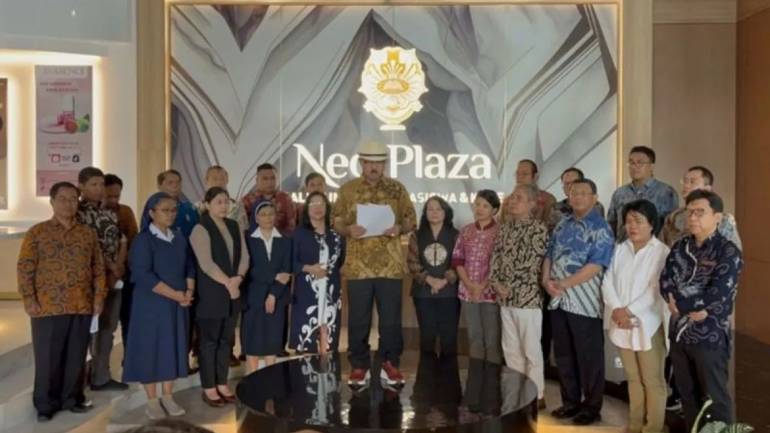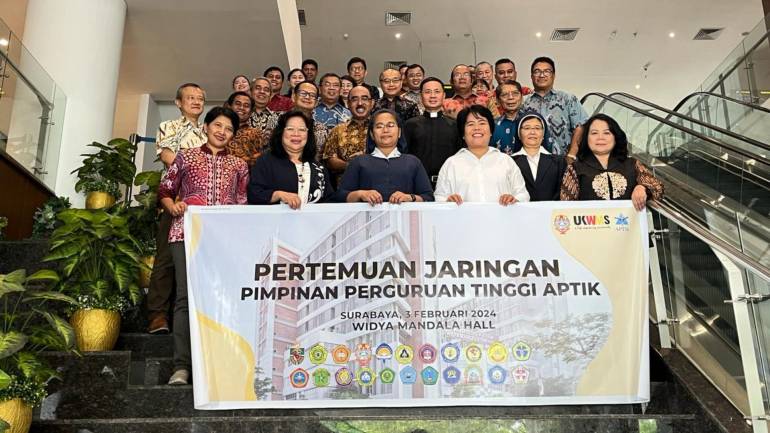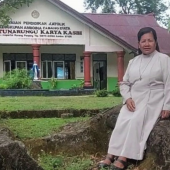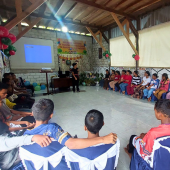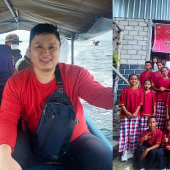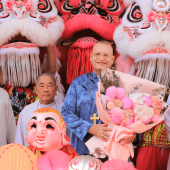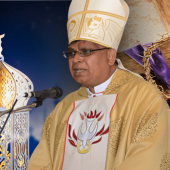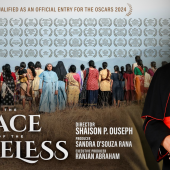The Association of Indonesian Catholic Universities calls for a fair and free general election
The Association of Indonesian Catholic Universities (APTIK) expressed its concern about the forthcoming general elections in the country and called for “honest and fair” voting.
The Association of Indonesian Catholic Universities (APTIK) presented a statement regarding the political situation in Indonesia during the general election, which will take place on February 14, 2024.
"We, the Chancellors and Heads of Indonesian Catholic Universities who are members of the Association of Indonesian Catholic Universities (APTIK), are very concerned about the conditions in our beloved homeland regarding the destruction of Indonesia's legal and democratic systems as the General Election will take place simultaneously this 2024," said APTIK coordinator Dr. G. Sri Nurhartanto, S.H., LL.M., at Widya Mandala Catholic University Surabaya (UKWMS), East Java, on Saturday, February 2, 2024.
The practices of abuse of power, collusion, corruption, and nepotism, as well as law enforcement, which increasingly deviate from the spirit of reformation and the state constitution, have torn the conscience and sense of justice of the Indonesian people.
APTIK also calls on all parties involved in 2024 to hold elections in a quality, dignified, honest, and fair manner.
"The President and all his staff must organize government based on the principles of good governance and uphold their oath of office, following their main duties and functions, to improve the welfare of the Indonesian people by fighting collusion, corruption, and nepotism and enforcing the law by not using selective favoritism and always upholding ethics in its work."
The association urged the election organizers to ensure publicly honest and fair elections, allowing every eligible voter to freely exercise their right to vote according to their conscience without any form of pressure.
Likewise, the members of the association requested that state officials, both the State Civil Apparatus (ASN), the Indonesian National Army (TNI), and the Indonesian National Police (POLRI), always act neutrally and not take sides with certain parties.
Furthermore, the state must respect, protect, and fulfill every citizen's right to freedom of expression as part of human rights.
Nurhartanto, who is also the chancellor of Atma Jaya Catholic University Yogyakarta, emphasized that the state "must prioritize a peaceful, non-violent approach during the campaign period up to the time of the general election and afterwards."
Lastly, APTIK reminds all universities in Indonesia to be actively involved in monitoring and supervising the general election.
APTIK is a collaborative institution between administrators of Catholic higher education foundations throughout Indonesia, with 23 members.
Indonesia will have one of the largest election days in the world, with around 205 million voters eligible to cast ballots.
Voters will choose the next president of the third-largest democracy in the world, as well as legislative and executive representatives at all administrative levels, in this election. Given that about a third of voters are under 30 and over half of those eligible to vote are between the ages of 17 and 40, the youth demographic is crucial to the result.
It is against the constitution for the current president, Joko Widodo, also known as Jokowi, to run for a third term.
The key candidates for the post of president include Prabowo Subianto, 72, a former military general and incumbent defense minister; Anies Baswedan, 54, a former academic who was previously Jakarta governor; and Ganjar Pranowo, 55, who had a long career in public service and is the former governor of Central Java.
To win, presidential contenders need to receive a majority of the vote—more than 50%. If no one succeeds, the top two candidates will compete in a run-off election in June.- Emiliana Saptaningsih
Radio Veritas Asia (RVA), a media platform of the Catholic Church, aims to share Christ. RVA started in 1969 as a continental Catholic radio station to serve Asian countries in their respective local language, thus earning the tag “the Voice of Asian Christianity.” Responding to the emerging context, RVA embraced media platforms to connect with the global Asian audience via its 21 language websites and various social media platforms.





